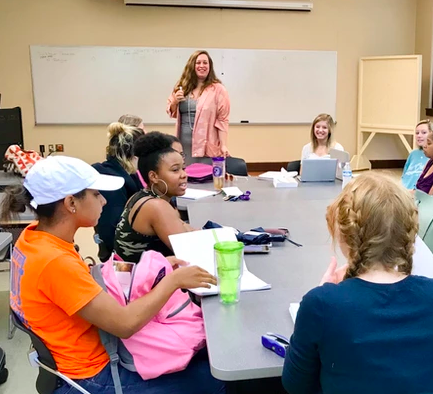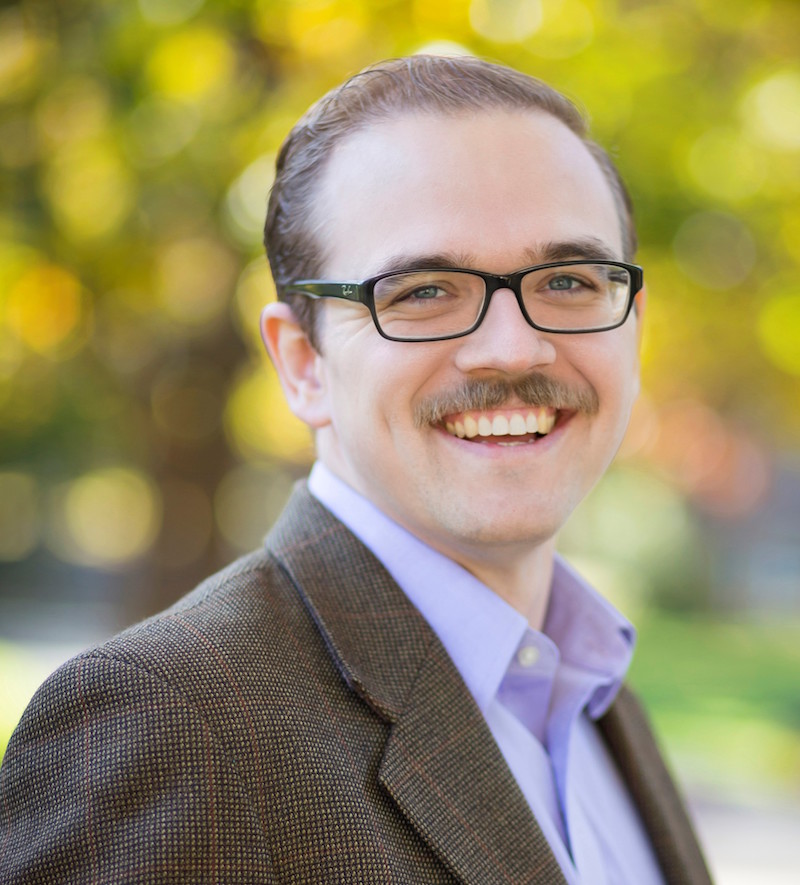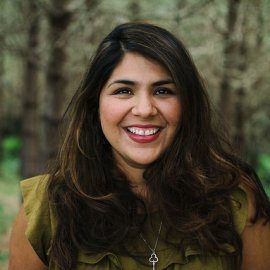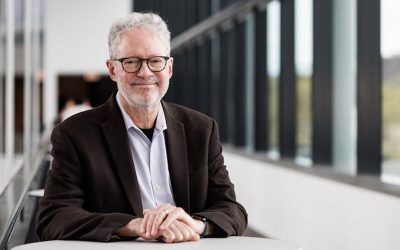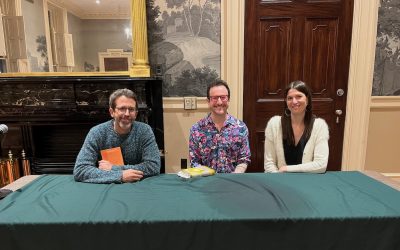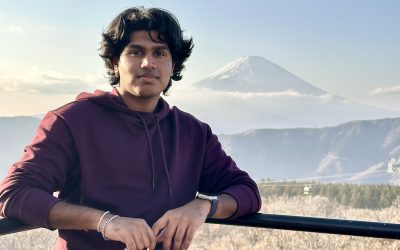Drew Theological School Graduate Division of Religion alums share their path to Drew and beyond
September 2021 – Drew Theological School’s Graduate Division of Religion program prepares students for vocations in teaching and research in theological schools, colleges, and universities; or for the scholarly enhancement of ministerial practice and religious leadership.
"I loved my time at Drew. The faculty specialize in scholarly traditions that can radically challenge your worldview, even your habits of perception—if you’re willing to let yourself be changed. I experienced Drew as dynamic and transformational; I’m so grateful to be an alum." Erica Bryand Ramirez T’19, Director of Applied Research, Auburn Seminary
Drew Theological School spoke with four alums with careers in higher education who have earned their PhD’s through Drew’s Graduate Division of Religion.
Karen Suzanne Bray T’16, Assistant Professor of Religion, Philosophy, and Social Change and Director of Interdisciplinary and Honors Programs, Wesleyan College
Dissertation Title: “Unredeemed: A Political Theology of Affect, Time, and Worth”
Recent Publications: Grave Attending: A Political Theology for the Unredeemed (monograph, Fordham University Press 2019)
Religion, Emotion, Sensation: Affect Theories and Theologies (co-edited volume with Stephen D. Moore, Fordham University Press 2019)
In what ways have you applied the education/skills you’ve learned at Drew to your current position?
My experiences as a teaching assistant at Drew were invaluable for my pedagogy and how I construct the classroom to be a space of transformation and bonding. Drew showed me how to connect students to undiscovered theories and thinkers and to encourage them to incorporate new ways of being and knowing into their sense of self.
What led you to the GDR program at Drew Theological School?
The works of Catherine Keller, George T. Cobb Professor of Constructive Theology, and Traci West, James W. Pearsall Professor of Christian Ethics and African American Studies, first led me to Drew. As I got to know the program better through the application process, it was the deep bench of faculty working across disciplines and participating in cutting-edge theology, philosophy, and ethics that solidified Drew as my place.
Tell us about your experience at Drew.
If someone wants to do theology without bounds—theology that sees new cultural theories and movements, ones from the margins as legitimate sources of intellectual endeavor—Drew is the place for them. It is because of the transdisciplinary work at Drew and the relationships the Drew faculty have with colleagues across the world that my book could engage such timely material and be well received in so many different areas. I would not have my expansive web of colleagues and mentors if it were not for the ethos of Drew.
Jennifer T. Kaalund T’15, Associate Professor of New Testament, Pittsburgh Theological Seminary
Dissertation Title: “Dislocating Diaspora: Reading Hebrews and 1 Peter with the African American Great Migration”
Recent Publication: “In Christ, but Not of Christ: Reading Identity Differences Differently” in Minoritized Women Reading Race and Ethnicity, Mitzi J. Smith and Jin Young Choi, eds. (Fortress/Lexington Press, September 2020), 23-44.
In what ways have you applied the education/skills you’ve learned at Drew to your current position?
My teaching and research are definitely informed by my formation at Drew. I had some truly amazing teachers who utilized a variety of approaches to teaching and did so masterfully. Many of those approaches have influenced the teacher that I’ve become. I also think that my ability to be creative in my research was cultivated at Drew.
What led you to the GDR program at Drew Theological School?
I think one thing that makes Drew’s program unique is that it is truly interdisciplinarian and integrative. There are few places that offer the ability to explore a variety of intellectual curiosities deeply—from feminism to postcolonial theory to material culture to ecology, to name a few. Drew afforded me the ability to expand the depth and breadth of my knowledge in multiple areas.
Tell us about your experience at Drew.
As graduate students, we had reading groups and we supported each other’s scholarship with writing groups. To this end, I think my Drew experience also taught me how to be a gracious colleague, and I continue to support this ethos. I developed lifelong friendships that began at Drew. In so many ways, Drew created a nurturing environment that enabled me to experiment with new approaches while concomitantly challenging me to grow as a scholar. I am grateful for my time there.
Peter McLellan T’19, Educational Analyst, Oxford College of Emory University
Dissertation Title: “Return of the Living Dead: The Gospel of Mark and Other Haunted Places” (forthcoming as a book from Gorgias Press)
Recent Publication: “Queer Necropolitics in the Decapolis: Here and There, Now and Then,” Biblical Interpretation 28.4 (2020)
In what ways have you applied the education/skills you’ve learned at Drew to your current position?
Drew gave me tools to challenge systemic injustices and imagine revolutionary change, even when society refuses to imagine a new world. Higher education needs people with those skills now because we both see inequities every day in the lives of our students and have the chance to make change.
What led you to the GDR program at Drew Theological School?
I have always thrived as a student in places where my creativity is fostered. I knew that the faculty at Drew would help mold my imagination to do good work.
Tell us about your experience at Drew.
More than my classroom experience, more than the faculty, I was influenced by my peers in the PhD program. Through our conversations about scholarship and life, I encountered more ways of knowing than I would have elsewhere.
Erica Bryand Ramirez T’19, Director of Applied Research, Auburn Seminary
Dissertation Title: “Rise of the Lamb’s Queen: Revisiting Azusa Street Mission with Pierre Bourdieu, Mikhail Bakhtin, and Julia Kristeva”
Recent publication: Who’s Laughing Now? Pentecostal Disrespectability Politics for Political Theology Network
In what ways have you applied the education/skills you’ve learned at Drew to your current position?
I’ve used my skills in the classroom, as an assistant professor at Portland Seminary, then in the field, where I researched how some churches have created welcoming cultures for new Americans. In The Washington Post and The New York Times, I’ve helped explain Protestants’ politics. At Auburn Seminary, I use my understanding of cultural fields of production to strategize and evaluate programming.
What led you to the GDR program at Drew Theological School?
The Forum for Theological Exploration invited me to the American Academy of Religion’s annual conference in 2010. Once there, I wandered into Drew’s reception. An Yountae T’14 welcomed me in and introduced me to the late Professor of World Christianity and Latin American Christianity at Drew, Otto Maduro, who wound up being my first advisor.” The vibe in the room that night was so compelling—I didn’t apply anywhere else.
Tell us about your experience at Drew.
I loved my time at Drew. The faculty specialize in scholarly traditions that can radically challenge your worldview, even your habits of perception—if you’re willing to let yourself be changed. I experienced Drew as dynamic and transformational; I’m so grateful to be an alum.
View a collection of published work from Drew’s GDR alums and more information on Drew’s current PhD students.
